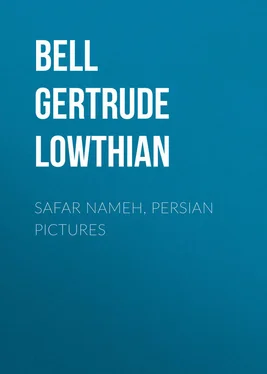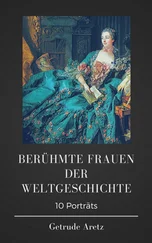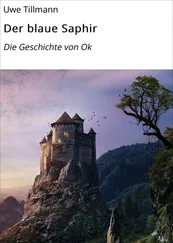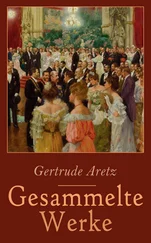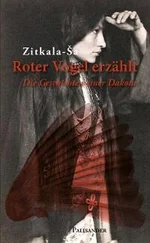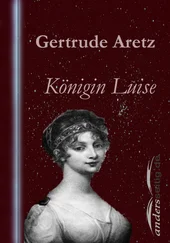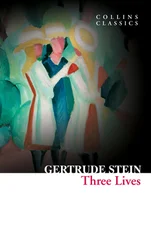Gertrude Bell - Safar Nameh, Persian Pictures
Здесь есть возможность читать онлайн «Gertrude Bell - Safar Nameh, Persian Pictures» — ознакомительный отрывок электронной книги совершенно бесплатно, а после прочтения отрывка купить полную версию. В некоторых случаях можно слушать аудио, скачать через торрент в формате fb2 и присутствует краткое содержание. Жанр: foreign_antique, foreign_prose, на английском языке. Описание произведения, (предисловие) а так же отзывы посетителей доступны на портале библиотеки ЛибКат.
- Название:Safar Nameh, Persian Pictures
- Автор:
- Жанр:
- Год:неизвестен
- ISBN:нет данных
- Рейтинг книги:3 / 5. Голосов: 1
-
Избранное:Добавить в избранное
- Отзывы:
-
Ваша оценка:
- 60
- 1
- 2
- 3
- 4
- 5
Safar Nameh, Persian Pictures: краткое содержание, описание и аннотация
Предлагаем к чтению аннотацию, описание, краткое содержание или предисловие (зависит от того, что написал сам автор книги «Safar Nameh, Persian Pictures»). Если вы не нашли необходимую информацию о книге — напишите в комментариях, мы постараемся отыскать её.
Safar Nameh, Persian Pictures — читать онлайн ознакомительный отрывок
Ниже представлен текст книги, разбитый по страницам. Система сохранения места последней прочитанной страницы, позволяет с удобством читать онлайн бесплатно книгу «Safar Nameh, Persian Pictures», без необходимости каждый раз заново искать на чём Вы остановились. Поставьте закладку, и сможете в любой момент перейти на страницу, на которой закончили чтение.
Интервал:
Закладка:
Gertrude Margaret Lowthian Bell
Safar Nameh, Persian Pictures / A Book Of Travel
AN EASTERN CITY
The modern capital of Persia lies in a plain ringed half-way round by mountains, which on the northern side touch with frozen summits the regions of eternal snow, and on the east sink into low ranges of hills, stretching their naked arms into the desert. It is the chief city of a land of dust and stones – waste and desolate, Persia unfolds her monotonous length, broken only by ridges of hills even more barren than the plain itself, southward from the gates of Tehran. There is a certain fine simplicity in a landscape from which the element of water, with all the varied life it brings in its murmuring train, is entirely absent. The empty world looks like a great room cleared for the reception of some splendid company; presently it will be filled by a vast pageant of men or angels: their lance-heads will flash back the dazzling rays of the sun, their banners will float out many-coloured against the sombre background, the peal of their trumpets will re-echo from mountain to mountain. But no! day after day rises upon the same silence, the same solitude, and at length the watcher turns away impatiently, with the conviction that he has been gazing with futile expectation upon the changeless features of the dead. The pageant has long since swept over the land – swept onward. Mother of human energies, strewn with the ruins of a Titanic past, Persia has slipped out of the vivid world, and the simplicity of her landscape is the fine simplicity of death. ‘Alas, poor Yorick!’ says Hamlet, yielding, in an exceptionally unpremeditated moment, the natural tribute of pity from the living to the dead. Persia in such an aspect may be pitiful enough, but it is not admirable.
To the north of Tehran, however, the lower slopes of the Shimran range are clothed with gardens and cornfields, as though the dense vegetation which, by a strange freak of nature, stretches its belt of green along the southern shore of the Caspian, between the shifting sands of the Oxus and the black, naphtha-saturated earth of Baku, had sent its roots through the very heart of the mountains and found a foothold for its irrepressible luxuriance even among dust and stones. The capital itself, as you approach it from the west, presents the appearance of a wood rather than of a city – nor minaret, nor tower, nor dome forms a landmark above it, the trees of its gardens conceal its stunted buildings, and it is not until the traveller finds himself under its very walls that he can say, ‘Here is Tehran!’ It owes its life to the snow mountains, from whence its water flows; the ground between them and the town is undermined by a network of passages, vaulted over with stone, and ventilated by air-holes at intervals of about fifty yards, each hole being protected by a mound of earth. Within, these arteries of the city are the width of a man’s shoulders, and scarcely high enough to allow him to walk upright; he stumbles, knee-deep in water, along the uneven bed, bending himself double where the vault drops lower, squeezing past narrow corners cut out of the solid rock. On either side black apertures open into more passages, bringing in tributary streams from right and leftward, and at intervals the darkness is broken by the ray of sunlight which strikes through one of the air-holes, burying itself, like an ill-directed spear, deep into the earth. No other form of irrigation remains, no storage of water, in a country where these arts were probably familiar to the far larger population which dwelt in former ages at the foot of the mountains. The present system is clumsy and laborious. Constant watchfulness is needed to keep the Kanats from falling into disrepair and from becoming blocked by masses of roots, and if this were to be relaxed, Tehran would in a few years cease to exist.
To what merit it owes its position of capital remains a mystery. It is the seat of no native industry; arid deserts and narrow mountain-passes, traversed only by caravans of mules, cut it off from all convenient intercourse with the west. Isfahan is invested with the traditions of a former importance; about Shiraz linger the vestiges of a still mightier antiquity; Casvin lies a hundred miles nearer to the Caspian; Tehran is only a modern seat of government called to importance by the arbitrary will of the present race of sovereigns.
Many gates lead into the city, breaking the level of the mud walls, with their arches and turrets, which are decorated with tiles of faïence set into patterns and pictures and inscriptions. The space enclosed by the walls is a large one, but it is not by any means filled with houses. Passing through one of the western gateways, you will find yourself at first in desolate tracts of sand, stretching between unfinished or ruined buildings; occasionally the open doorway in a long mud wall will reveal to you a luxuriant garden full of tanks and fountains and flower-beds, under whose plane-trees stands the house of some rich man who can afford himself a weekly sufficiency of water to turn the wilderness into fertile pleasure-grounds; further on you will come upon wide streets, very empty and silent, fringed by low, mud-built houses; gradually the streets narrow, the sloping counters of shops present their wares to the passers-by: fruit and vegetables, and the broad thin flaps of Persian bread; here and there a European shop-window, behind which the goods are more miscellaneous than tempting; here and there the frontage of some Government building, with a doorway gaily patterned in coloured bricks. As the streets grow narrower, they become more crowded. A kaleidoscopic world of unfamiliar figures passes to and fro beneath the white mulberry-trees which spring out between the cobble stones of the pavement: grave elders holding their cloaks discreetly round them, dervishes with a loincloth about their waists, and a brilliant scarf bound over their ragged locks, women enveloped from head to foot in loose black garments, a linen veil hanging over their faces, and making them look like the members of some strange religious order, negro slaves and white-robed Arabs, beggars and loiterers, and troops of children pressing in and out between the horsemen and the carriages. Sometimes a beggar will accost you – a woman, perhaps, drawing aside a corner of her veil and imploring alms in a sweet high voice. If you turn a deaf ear to her prayers, she will invoke curses on your head, but a copper coin will purchase you every blessing known to man, including the disappearance of the lady in question, who would otherwise have followed you with unblushing persistence, shouting, ‘Pul! pul! pul!’ – Money! money! money! – in your ear.
At a street corner a group of soldiers are shaking the branches of a mulberry-tree, and eagerly devouring the sickly fruit which falls into the dust at their feet. Judging from the appearance of the Persian army, a foreigner would be tempted to conclude that it subsisted entirely upon white mulberries, and was reduced to a state of starvation when the summer was over. The hands of paymasters are adhesive in the East: but a small proportion of his earnings reaches the common soldier, and mulberries, flavoured with dust, have at least the merit of furnishing him with an inexpensive meal. His outward man is not calculated to inspire much alarm in the breast of his enemies. His gait is slouching, his uniform torn and discoloured; not infrequently he wears his shirt outside his trousers, and the ragged flounce of brownish-gray linen hanging below his tunic lends him an air anything but martial. His temperament seems to be childlike and peaceable in the extreme. He amuses himself while he is on guard with foolish games, constructing, for instance, a water-mill of tiny wheels, which the stream in front of the palace will set a-turning, and whose movement will delight his eyes as he passes up and down. It is even related (and the tale is scarcely past credence) that on a certain occasion when a person of importance was visiting a southern fortress, he found one of the men who guarded the gateway engaged in knitting stockings, and the other turning an honest penny by the sale of apples. Nevertheless, the Shah is proud of his army. He spends happy hours devising new uniforms for his men – uniforms which are the strangest jumble of European reminiscences and an Oriental love of bright colour.
Читать дальшеИнтервал:
Закладка:
Похожие книги на «Safar Nameh, Persian Pictures»
Представляем Вашему вниманию похожие книги на «Safar Nameh, Persian Pictures» списком для выбора. Мы отобрали схожую по названию и смыслу литературу в надежде предоставить читателям больше вариантов отыскать новые, интересные, ещё непрочитанные произведения.
Обсуждение, отзывы о книге «Safar Nameh, Persian Pictures» и просто собственные мнения читателей. Оставьте ваши комментарии, напишите, что Вы думаете о произведении, его смысле или главных героях. Укажите что конкретно понравилось, а что нет, и почему Вы так считаете.
